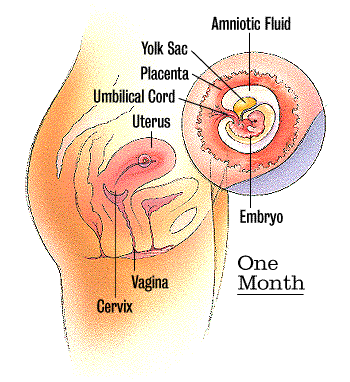
Are you ready? If you're trying to become pregnant, you'll want to stop drinking and taking drugs ¡X even over-the-counter ones ¡X before you conceive, so your body will be in the best possible shape for babymaking.
Strange as it may seem, your healthcare provider will calculate your due date (and the baby's gestational age) by working back to the first day of your last menstrual period. Since it's often difficult to know exactly when you'reovulating, and consequently when sperm fertilized your egg, medical experts often use your last menstrual period as the starting point for the next nine months. This means the first week of your pregnancy is actually the week you started your last period. As a result, the baby's age is two weeks behind his gestational age.
During the second week, estrogen triggers your uterus ¡X as it does each month in anticipation of new life ¡X to form a lush, blood-rich lining of tissue. Rising levels of the hormone progesterone prepare the uterus to support a fertilized egg. At the same time, the ovaries ripen eggs in fluid-filled sacs called follicles. It's during this brief period that your body's preparation can result in conception once sperm meets the egg.
By the third week, things really start to happen, baby-wise. Around mid-cycle (day 14 of a typical 28-day cycle), you ovulate ¡X one of your eggs is swept into your Fallopian tube. In the next 12 to 24 hours that egg can be fertilized if one of 350 million sperm (an average ejaculation) manages to trek all the way to the Fallopian tube ¡X from the vagina through the uterus ¡X to penetrate the egg.
Once fertilized, the egg, now called a zygote, immediately closes its outer membrane to the rest of the 250 (on average) sperm that have made it this far. Then it begins dividing into identical cells as it sails down the Fallopian tube to the uterus, where it will continue to grow. You probably won't know you're pregnant for a few weeks yet, though some women swear they know the exact moment they conceived.
